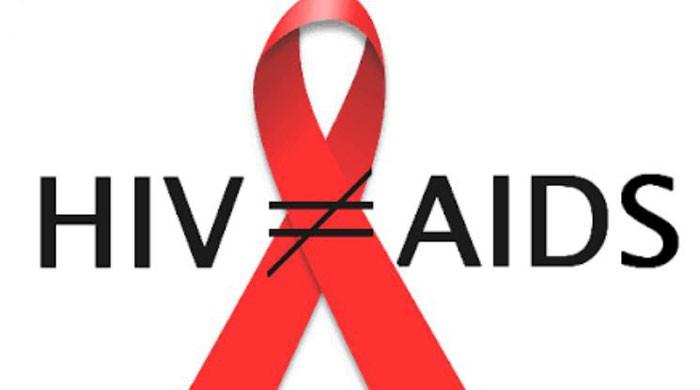HIV, AIDS prevalence highest in Karachi in 20 years: report
71 percent of HIV/AIDS patients in Sindh belong to Karachi
November 22, 2016

KARACHI: Pakistan’s biggest city Karachi tops the province in the number of HIV and AIDS patients, core statistics revealed in Sindh Aids Control Program (SACP) 20 years report show.
According to the report, more than 10,652 patients are registered in Sindh, of whom 71 percent or 7,620 patients belong to Karachi, followed by 1,330 from Larkana and 302 from Hyderabad.
So far, more than 73 foreigners and 304 patients belonging to different provinces of the country are also registered in the SACP.
The gloomy performance of the SACP is evident from the report, which shows that only five treatment centres are working in the entire Sindh province, with Karachi leading the patient burden. Non-availability of medicines is another crucial hindrance in tackling the disease.
Asked about the SACP, Health Minister of Sindh Dr Sikandar Ali Mehndro admitted that the program is not working effectively due to lack of monitoring and administration.
The report further reveals that the hometown of Pakistan People's Party, Larkana, is on the second spot with more than 1,300 cases so far – another statistic which shows the ground reality surrounding the work of the SACP.
According to Additional Director Health Karachi Dr Nadeem Sheikh, the following are the symptoms of HIV and AIDS:
* nausea
* vomiting
* persistent diarrhea
* chronic fatigue
* rapid weight loss
* cough and shortness of breath
* recurring fever, chills, and night sweats
* sores in the mouth or on the genitals.
Dr Sheikh cautioned the public to take preventative measures to avoid contracting the virus. People visiting hairdressers and women visiting saloons should always ask for sterilised accessories. People should also get blood screening done if there is any reason to suspect, he added.
Health experts say that the actual figures for HIV and AIDS patients are far higher than what the report reveals due to the taboo attached to the condition. They strongly advise people to go for checkups and break the taboo surrounding the virus because once a patient contracts the disease it stays with him/her till the last breath.









